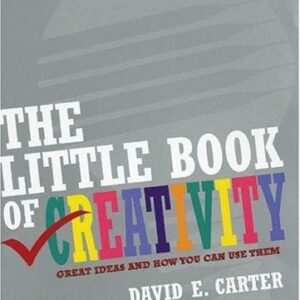$20.00
| Title | Range | Discount |
|---|---|---|
| Trade Discount | 5 + | 25% |
- Description
- Additional information
Description
One of the Best Technology Books of 2020—Financial Times
“Levy’s all-access Facebook reflects the reputational swan dive of its subject. . . . The result is evenhanded and devastating.”—San Francisco Chronicle
“[Levy’s] evenhanded conclusions are still damning.”—Reason
“[He] doesn’t shy from asking the tough questions.”—The Washington Post
“Reminds you the HBO show Silicon Valley did not have to reach far for its satire.”—NPR.org
The definitive history, packed with untold stories, of one of America’s most controversial and powerful companies: Facebook
As a college sophomore, Mark Zuckerberg created a simple website to serve as a campus social network.
Today, Facebook is nearly unrecognizable from its first, modest iteration. In light of recent controversies surrounding election-influencing “fake news” accounts, the handling of its users’ personal data, and growing discontent with the actions of its founder and CEO—who has enormous power over what the world sees and says—never has a company been more central to the national conversation.
Millions of words have been written about Facebook, but no one has told the complete story, documenting its ascendancy and missteps. There is no denying the power and omnipresence of Facebook in American daily life, or the imperative of this book to document the unchecked power and shocking techniques of the company, from growing at all costs to outmaneuvering its biggest rivals to acquire WhatsApp and Instagram, to developing a platform so addictive even some of its own are now beginning to realize its dangers.
Based on hundreds of interviews from inside and outside Facebook, Levy’s sweeping narrative of incredible entrepreneurial success and failure digs deep into the whole story of the company that has changed the world and reaped the consequences.One of the Best Technology Books of 2020—Financial Times
Praise for Facebook
“Steven Levy is the founding guru of technology journalism. Few other writers can harness both access to top figures and critical insight informed by decades of reporting on Silicon Valley. His Facebook book will be a blockbuster, a penetrating account of the momentous consequences of a reckless young company with the power to change the world.”—Brad Stone, author of The Everything Store and The Upstarts
“Exhaustive and well-paced history of the tech giant . . . Levy’s narrative is richly detailed, thanks to interviews with Facebookers past and present. . . . Levy’s account of Zuckerberg’s abbreviated Harvard tenure and Facebook’s early years feels fresh, with plenty of color that reminds you the HBO show Silicon Valley did not have to reach far for its satire.”—NPR.org
“Comprehensive and captivating history.”—The Wall Street Journal
“Levy writes with verve . . . [he] is able to trace the origins of the Cambridge Analytica scheme to Facebook’s disregard for the privacy concerns of the first users. . . . In discussing the development of the News Feed and advertising, Levy foreshadows the future misuse by rogue actors, including Russia’s Internet Research Agency, the group charged by Special Counsel Robert Mueller with interfering in the election. . . . [He] doesn’t shy from asking the tough questions.”—The Washington Post
“The social-media behemoth Facebook comes across as an idealistic but also shady, exploitative, and increasingly beleaguered entity in this clear-eyed history. . . . Levy had extensive access to Facebook employees and paints a revealing and highly critical portrait of the company as it wrangled with charges that it violated users’ privacy by sharing their data with advertisers and political operatives, and served as a vector for manipulative fake news, pro-Trump Russian propaganda, and hate speech.”—Publishers Weekly
“Steven Levy’s all-access Facebook reflects the reputational swan dive of its subject. Levy is the dean of tech writers; Facebook’s brass gave him the run of the C-suite. The result is evenhanded and devastating.”—San Francisco Chronicle
“Fresh, up-to-date, and insider-ish.”—The Economist
“Respected tech writer Levy (In the Plex, 2011) presents the definitive story of Facebook. . . . Given unfettered access to Zuckerberg and the company during the last three years, Levy is able to illustrate how the company developed under the influence of Zuckerberg’s acknowledged hypercompetitiveness. . . . This absorbing book will inspire important conversations about big tech and privacy in the twenty-first century.”—Booklist
“The value of this book lies in its putting together all the pieces of Facebook’s privacy troubles, algorithms, and the Cambridge Analytica affair.”—Library Journal
“Steven Levy, who reported [on Facebook] over three years, is one of the best writers about tech, period. His access—through the company and around it—is impressive.”—The Information, February Book Club Pick
“I highly recommend this . . . It is probably the best read on a high-tech big wig that is changing history that I’ve read in a long, long, long time. I heartily and highly recommend it. Bring some popcorn with you when you read it.”—Neil Cavuto on Cavuto: Coast to Coast
“[Levy] consistently demonstrates how he’s driven by the facts rather than by any philosophical or political agenda. And that’s exactly why, once Levy has layered on so many new facts about Facebook, its principals, and its various lapses and betrayals, piling on the details from hundreds of interviews, putting all the pieces of every part of Facebook’s story into one place, his most evenhanded conclusions are still damning. . . . What all Facebook’s critics, and the tech industry’s critics, will have in common is this: Going forward, we all will be citing stuff we learned from Levy’s Facebook: The Inside Story.”—Reason
“Levy portrays a tech company where no one is taking responsibility for what it has unleashed. . . . The book closes with a recognition that Facebook is bulldozing ahead with new innovations—from Facebook dating to its Libra digital currency project—while Zuckerberg continues to shrug off any ethical queries about his past behavior.”—Financial Times
“In Facebook: The Inside Story, Levy turns his massively insightful gaze to the trajectory of Facebook from its birth, its dizzying growth, and its embattled present, when its reputation is extensively scarred. . . . All in all, Levy capably takes us into FB’s office, and into the mind-sets of its engineers. He does so in a brilliantly readable narrative. Indeed, Levy’s expertise at narrative nonfiction—the use of scenes, dialogue, and other techniques, to create a story on the page—is ample, and it shows in the smooth and pacy flow of this book; as does his ability to go beyond bits, bytes, and balance-sheets to map the mind-spaces of the techies behind Facebook, their ambitions, creative impulses, greed, and desire to succeed. . . . One of the (numerous) merits of reading this book: it makes you think about how your online self and networks are sculpted, at least in part, by people sitting continents away, in what ways, how the online self is grafted onto the flesh-and-blood one, and how the online self is manipulated, tweaked, even exploited. Take a bow, Steven Levy.”—MoneyControl.com
“Wired editor Steven Levy uses tales from Zuckerberg’s early life, pages from his handwritten journals, and encounters with company execs to add texture and color to the familiar Facebook origin story. He creates an intimate portrait of Zuckerberg’s competitive nature and goals and how they have informed the company’s zealous pursuit of growth over the last decade. It’s a timely probe into the tech company’s motivations around data privacy, disinformation, and corporate responsibility.”—Mashable
“Steven Levy charts the novelty, the thrusting, and the hubris of Facebook, which in many ways reflects the personality of its still wholly dominant founder. He presents some extraordinary facts in a racy and riveting mainly chronological narrative.”—The CriticSteven Levy is Wired‘s editor at large. The Washington Post has called him “America’s premier technology journalist.” His previous positions include founder of Backchannel and chief technology writer and senior editor for Newsweek. Levy has written seven previous books, and his work has appeared in Rolling Stone, Harper’s Magazine, Macworld, The New York Times Magazine, Esquire, The New Yorker, and Premiere. Levy has also won several awards during his thirty-plus years of writing about technology, including for his book Hackers, which PC Magazine named the best sci-tech book written in the past twenty years; and for Crypto, which won the grand e-book prize at the 2001 Frankfurt Book Fair.
1
ZuckNet
On a chilly night in January 1997, a twenty-eight-year-old lawyer recently turned entrepreneur named Andrew Weinreich addressed a small crowd of investors, journalists, and friends at the Puck Building in New York City’s SoHo district and tried to explain what online social networking was, why the product he was announcing was the first example, and how the concept would change the world. It was a heavy lift.
Weinreich had come up with the concept as his contribution to a weekly meeting of would-be start-up founders who got together soon after the first wave of Internet companies like Yahoo!, Amazon, and eBay appeared. They would try to identify business ideas that were possible for the first time ever because of the net. Weinreich came up with an idea based around the concept of people volunteering information about their interests, their jobs, and their connections. He asked himself: What if I could get everyone to index their relationships in a single place?
He called his company sixdegrees, based on a concept that everyone on the planet was only six connections away from anyone else. Weinreich thought it was something Guglielmo Marconi had first stated, but actually it was a Hungarian writer named Frigyes Karinthy. In a short story called “Chain-Links,” the writer assessed this huge shift.
Planet Earth has never been as tiny as it is now. It shrunk-relatively speaking of course-due to the quickening pulse of both physical and verbal communication. This topic has come up before, but we had never framed it quite this way. We never talked about the fact that anyone on Earth, at my or anyone’s will, can now learn in just a few minutes what I think or do, and what I want or what I would like to do.
Hard to believe he wrote this in 1929! Karinthy’s characters in this short piece tried an experiment-to see if a chain of connections could connect them to any random human among the (then) world population of 1.5 billion with only five personal introductions, beginning with one’s personal network of friends and then proceeding to the next person’s introduction. In the story, one of the subjects-a Hungarian intellectual like the author-met the challenge of making the connection to a random riveter at the Ford Motor Company. Karinthy’s concept kicked around the social-science world for some decades until some researchers in the 1960s and ’70s tried to prove it with the limited computer power of their time. In 1967, sociologist Stanley Milgram published a Psychology Today article on what was then called the “small world problem.” In a study published two years later, he and his coauthor tried to connect random people in Nebraska with those in Boston and found that “the mean number of intermediaries between starters and targets is 5.2.” In 1990, the concept would gain wide cultural currency when playwright John Guare used it to illuminate his eponymous play, Six Degrees of Separation, adapted for film in 1993.
Weinreich’s implementation, though inspired by the Six Degrees theory, actually concentrated on two or three degrees of separation. “More often than not, I can meet the people I don’t know through those I do know,” he told the crowd at the Puck Building. For centuries, people have been using their friends and acquaintances to make such connections, but it had always been hit or miss. “Today we hope to change that,” he promised, “with a free, web-based networking service.” He compared it to putting your Rolodex online-and connecting to everyone else’s Rolodex. “If everyone uploads their Rolodex, you should be able to traverse the world,” he gushed.
On that cold night in January, Weinreich expressed a mission that was astounding to consider: connecting the world in a single network. “Imagine for a moment that we had not just you in the database but every Internet user in the world,” he asked his audience. (Of course there were only, he guessed, 40 to 60 million Internet users at that point.)
Weinreich assumed, as a matter of course, that connecting the world would be a boon to humanity. Why would it be otherwise?
Sixdegrees pioneered several tropes that would be part of virtually all social-networking sites. It included the viral-before-there-was-viral plan to use email invites to build the network. At the launch event, Weinreich even supplied printed-out invites inside envelopes to the attendees that were duplicates of the ones hitting their mailboxes. Then he urged them to open their browsers on computers in an adjoining room and begin submitting the emails of their friends and connections to sixdegrees. When those people got their invites they would be asked to confirm that they indeed knew those who suggested them. It was the first time that an online service used such verifications.
Sixdegrees was something new and, had it succeeded, would have been the nexus of endless studies and assessments. But it did not succeed. Weinreich’s great idea was too early. At the time, most people didn’t have email, let alone persistent web connections. And sixdegrees didn’t let you do much besides enter your connections into the giant database. There was no temptation to relieve your boredom on sixdegrees. No way to stalk an ex-lover. No way to watch a silly cat video. You would query the database of your extended social network when you wanted a connection or recommendation. And leave.
Those who did sign up to sixdegrees quickly noted how much better the service would be if you could see pictures of people. In 1997, that was a huge hurdle because very few people had digital cameras. Weinreich even considered hiring hundreds of interns or low-paid employees to sit in a big room and do nothing but scan photographs. But he decided against it, because by then he was already considering selling the company.
While sixdegrees proved the concept of social networking-it peaked at about 3.5 million users, which was impressive at that stage of the Internet-the state of technology was still a couple of years away from nurturing the kind of connectivity that a social network would need to really thrive. Weinreich dreaded having to raise the money to wait it out. In December 1999-just in time to avoid the huge dot-com crash that would soon hit the industry-Weinreich sold sixdegrees to a company called YouthStream Media Networks for $125 million. Included in the purchase price was the pending patent, “Method and apparatus for constructing a networking database and system,” which became known as the “social networking patent.”
Weinreich later would say that by selling early, he never did get to implement two things he had planned all along for sixdegrees. One was allowing for users to post comments and media on the site, sneaking into the territory of other early Internet outposts for what would be called user-generated content. The other was making sixdegrees into an operating system, or platform, where third parties could create applications that would run on top of what Weinreich had dreamed would be a social network that encompassed the globe.
What Weinreich did not know was the person who would build-and surpass-his vision was only twenty-five miles from the Puck Building. And he was twelve years old.
Mark Elliot Zuckerberg was born to Karen and Ed Zuckerberg in 1984. The day was May 14, almost four months after the launch of the Apple Macintosh, which aspired to push into common use what was still seen as a device for trained experts and batty hobbyists. Not many people had personal computers then, and fewer still had modems, the noisy peripherals that connected PCs to telephone lines. The precursor to the Internet, ARPAnet, was around, but limited to government and some computer-science students.
Ed Zuckerberg had both a computer and a modem. He had a lifelong affinity for technology in general and gadgetry in particular. When he was himself a child, his favorite subject was math.
Considering this, one might justifiably wonder whether Mark Zuckerberg’s later ascension to the status of global tech idol might be a case of the son living out the father’s thwarted ambitions. Ed never said as much, but he did not object when a New York magazine reporter writing about the family in 2012 floated the theory. “Growing up Jewish in New York City,” Ed said, “if you had half a brain, your parents wanted you to be a doctor or a dentist . . . But back then, there really weren’t a lot of jobs in computer programming . . . That was not the ‘appropriate use of my time,’ my parents would have said. It wasn’t for the smart boys.”
If not for the pressure it would have been different. “I would have done something in math, left to my own devices,” he says now. “Absolutely. I loved math.”
The Zuckerbergs lived in Dobbs Ferry, New York, twenty-five miles north of the big city. Both had grown up in working-class neighborhoods in the outer boroughs of that city. Their own parents were first-generation Americans. In 1977, while studying dentistry at NYU, Ed had gone on a blind date with a Brooklyn College coed, Karen Kempner, who hailed from Queens. He was twenty-four, she nineteen. Both had grandparents who emigrated from eastern Europe, and both were diligently studying to accomplish what was the career gold standard in each of their families: becoming a professional like a doctor or lawyer. Especially a doctor. (Ed’s father was a mailman; Karen’s father a precinct captain in “The 79,” in Brooklyn’s tough Bed-Stuy neighborhood. Her mother taught school.) Ed and Karen married in 1979, and after a couple of years living in a White Plains apartment, they moved to the Dobbs Ferry house. Among Westchester County suburbs, the town was known to be less wealthy (and less snooty) than other nearby bedroom communities, but Ed says it was simply the best house for their purposes-a sprawling, multilevel house atop a high knoll, a javelin’s toss away from the busy Saw Mill River Parkway, laid out so it could accommodate a home and a dental office. “It was the only one we could afford,” notes Karen. In the early ’80s, Ed moved his dental practice to the ground floor, with the Zuckerberg clan basically living above the shop.
Ed brought his high-spirited personality to his work. Karen was a psychiatrist who delayed a clinical career to raise Mark and his three sisters while helping her husband run the dental practice. (Mark was the second oldest, born two years after Randi; Donna and Arielle would follow.) “My wife was a superwoman,” Ed Zuckerberg said in a 2010 interview on a local radio show. “She managed to work and be home.” Like many Jewish parents who had gratefully moved up a rung on the ladder to the good life, the Zuckerbergs aspired to an even higher rung for their kids, and fiercely emphasized education. (Zuckerberg once joked about it: “Good Jewish mother . . . You know, go home; get 99 percent on the test, Why didn’t you get 100?”) At one point, Karen did practice in a nearby hospital-a choice made possible because the family always had a foreign au pair helping out-but was discouraged by the failure of medical insurance to cover her patients’ fees. Ed also once remarked that she thought her presence in the home might prevent her children from themselves landing on the psychiatry couch. On a Bermuda vacation, she and Ed decided she should give up the job. Her clinical skills wound up being utilized to calm nervous dental patients. Perhaps as a result of being pressured into a profession she did not formally practice, Karen Zuckerberg felt firmly that her own children should be free to pursue their passions. “You spend a lot of years working-you have to love what you do,” she says. “So we always felt it was up to our children to figure that out for themselves.”
Ed Zuckerberg’s geeky side presented itself in a constant pursuit of exotic new dental technology. When a magazine writer visited in 2012, Ed went on at length about a $125,000 root-canal machine he’d just bought. Zuckerberg’s pitch to his client was that his state-of-the-art equipment, along with a menschy compassion for patients, would make the trip of going to the dentist’s office a more pleasant experience than, say, going to the dentist’s office. “I was the first dentist in Westchester County who had digital X-rays, intra-oral cameras . . . all that tech stuff really got me going,” he says. He billed himself as “painless Dr. Z,” and his website (of course he had an early website) boasted that he “caters to cowards.”
Ed bought his first personal computer in the early 1980s-an Atari 800, a “consumer” machine that was great for games but required patience, skill, and a bit of insane optimism if you wanted to actually do something useful on it. But he taught himself Atari BASIC and kept a patient database. Before Mark was born, he’d upgraded to an IBM PC, which he used to run the practice.
So it wasn’t surprising to Ed Zuckerberg that his son would take to computers. From an early age, Mark had a mind attuned to logic, especially when the answer to one of his requests was no. “If you were going to say no to him, you had better be prepared with a strong argument backed by facts, experiences, logic, reasons,” Ed Zuckerberg once told a reporter. Mark, he said, was “strong-willed and relentless,” a description that many coworkers and rivals would certainly endorse.
As a tyke, Mark played with Ed’s old Atari, which was a great game machine. In sixth grade, he got his own computer. “It was a Quantex 486DX,” he recalled in a 2009 interview with me, and was surprised when I didn’t recognize the brand name of that IBM PC clone. “I don’t think it exists anymore,” he explained, taking me off the hook. “But my family didn’t have a lot of money, so I was lucky just to get a computer.”
From the beginning, Zuckerberg used the computer to indulge a curiosity about the way people organized themselves-and how some people gained power in the process. He seems to have had this obsession since toddlerhood. “When I was a kid I had Ninja Turtles, and they would just have wars and stuff like that,” he says. “What I used to do with my Ninja Turtles was create societies, and just, like, kind of model out how they’d interact with each other and things like that. I was just very interested in how systems worked like that.”
So when Zuckerberg played games on computers, they indulged his world-building imagination. One of his favorites was called Civilization, a popular series in the genre of “turn-based strategy games.” The idea was to build a society. He kept playing it even into adulthood.
US
Additional information
| Weight | 18.8 oz |
|---|---|
| Dimensions | 1.2900 × 5.9500 × 8.9500 in |
| Imprint | |
| ISBN-13 | |
| Author | |
| Audience | |
| BISAC | |
| Subjects | facebook books, fathers day gifts, Sheryl Sandberg, social network, nerd gifts, trump books, political gifts, millennial gifts, tech gifts, tech books, dad gifts, best new books, Silicon Valley books, zucked, stephen levy, the social network, social media books, mark zuckerberg, facebook book, books about facebook, facebook, gifts for dad, business, biography, technology, Silicon Valley, BIO015000, economics, social media, gifts for men, politics, zuckerberg, startup, biographies, strategy, money, scandal, TEC052000, gift books, business books |
| Format |











